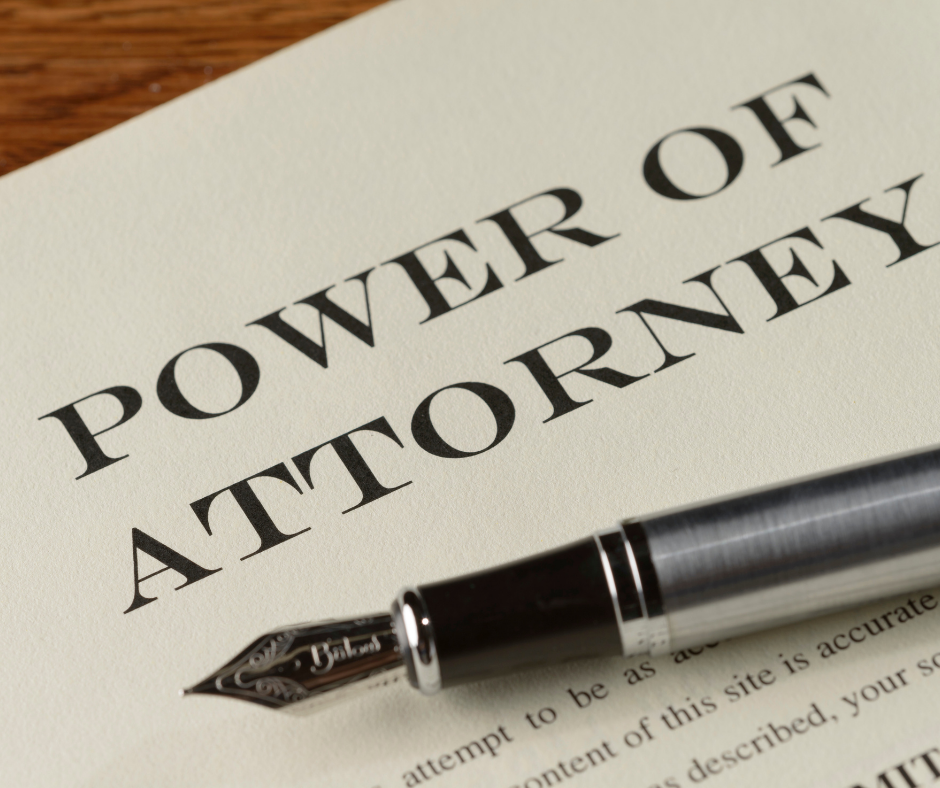Just five years ago, South Carolina adopted a new Act governing all Powers of Attorney executed on or after January 1, 2017. While South Carolina attorneys have been drafting Powers of Attorney for decades, these news laws, collectively termed the South Carolina Uniform Power of Attorney Act (SCUPOAA), give attorneys and their clients more guidance as to the powers and duties that a Power of Attorney can provide. Armed with the new SCUPOAA, attorneys often offer this tool to clients when preparing other estate planning materials, such as wills and trusts.
One of the main advantages of a Power of Attorney is that it is a mechanism that gives a trusted loved one the agency and authority to act over an individual’s finances and affairs, particularly in the event that they are no longer able to handle their own affairs.
A common problem that I often see in my litigation practice is this: someone begins to experience a decline in their mental state, or they receive a new diagnosis from a doctor, and family and friends become nervous that the individual is unable to properly manage things themselves. When this scenario arises, individuals or their loved ones are often visiting an estate planning attorney for the first time, asking about a Power of Attorney. Too often, their timing is too late.
The unfortunate aspect is that by the time many people realize a loved one is experiencing a decline in their mental wellbeing, it is often too late for that person to sign a Power of Attorney. Under South Carolina law, a Power of Attorney is considered a contract. Therefore, in order for an individual to sign a Power of Attorney, and for that Power of Attorney to be valid, the individual must have the capacity to enter into a contract at the time of signing.
So what happens when there is no Power of Attorney in place? Well, now we have to get the Probate Court involved. That means judges, attorney fees, and conflict. If an individual no longer has the capacity to sign a Power of Attorney, some families choose to proceed with a Guardianship or Conservatorship proceeding in South Carolina’s Probate Courts, in which they are asking a judge to find their loved one incapacitated and order that another individual be appointed to control their personal wellbeing, their financial wellbeing, or both. Guardianship and Conservatorship proceedings are helpful to many families, and are not always contested. Regardless, they can be emotional and the alleged incapacitated individual may not be capable of speaking for themselves at this stage.
By opting for a Power of Attorney when one is mentally able to do so, much of the emotional and financial toll on families can be avoided. The SCUPOAA provides the ability for an individual designate an agent that has immediate power to act, or to designate someone to act at a certain point in time in the future (i.e: when a doctor provides in writing that an individual is incapacitated). It also provides that an individual may choose to designate a person to be their Conservator or Guardian if a protective proceeding is initiated in the Probate Court, thus eliminating unnecessary protective proceedings and giving the individual a voice in the matter. The SCUPOAA also speaks on the authority that may be designated to an agent, among other things.
In short, the SCUPOAA gives attorneys the ability to draft a Power of Attorney unique to each client. A Power of Attorney can be an effective tool to avoid future Conservatorship or Guardianship proceedings in the Probate Court, but the time to draft these documents is now. In some instances, it may already be too late if an individual is experiencing a declined mental state. Each situation is different, and it is best to speak to legal counsel in order to navigate where you are in your specific case. Contact Jolley Law Group for more questions you have about planning for the future.
